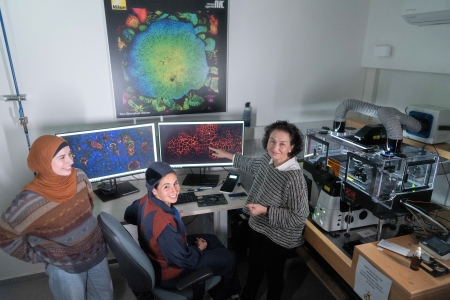
Several years ago, Prof. Eyal Mishani, director of HMO’s Research Fund and the head of the Research and Development and Innovation Division started the work to bring organoid technology developed in the Netherlands in 2009 to Hadassah. He believed that Hadassah could take its potential to the next level.
And that’s exactly what happened. A recent article in The Jerusalem Post spotlights the incredible opportunities open to scientists at Hadassah’s Organoid Center, where doctors take tissues from patients and grow them in the lab in such a way that the cells multiply and connect, eventually mimicking the features of a tissue in the body.
In 2021, Hadassah established a bio-bank to store the samples and make them available to researchers in Israel and around the world. “I believe our bio-bank will become an essential tool for the industry, especially as we develop it and increase the number of samples,” said Prof. Mishani.
Today, researchers use organoids to determine how various drugs and treatments will affect the tissues—and finally the individual patient. Not only does this personalized approach save the patient from grueling tests and drugs that may have no effect on disease, but it also reduces the time between the onset of illness and potential lifesaving treatments.
The director of the Organoid Center, Dr. Myriam Grunewald, pointed out that organoids may also reduce the use of animals in pre-clinical trials.
To read the complete article, click here.
Learn how organoids are helping patients at Hadassah here.
